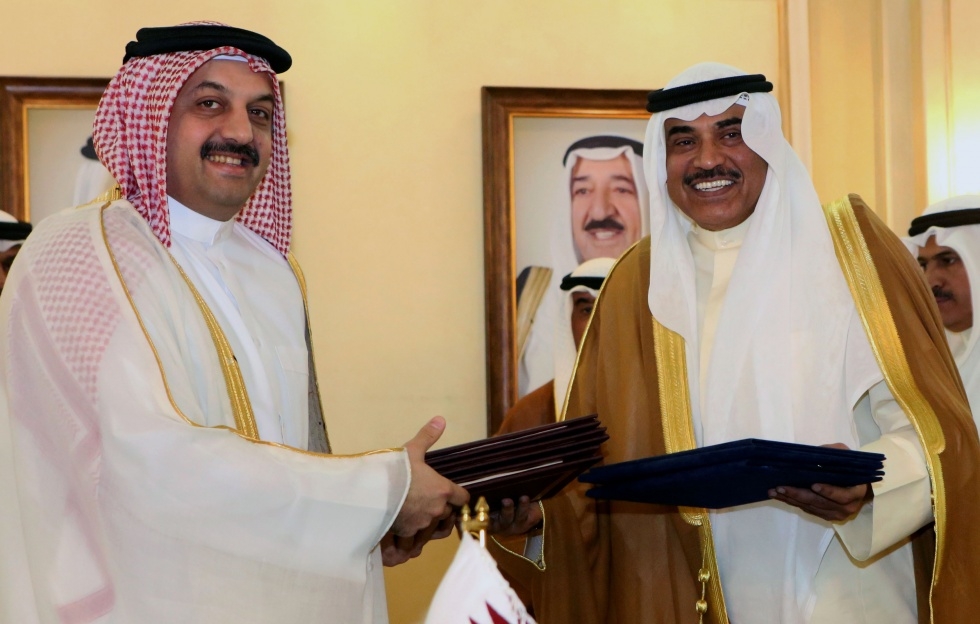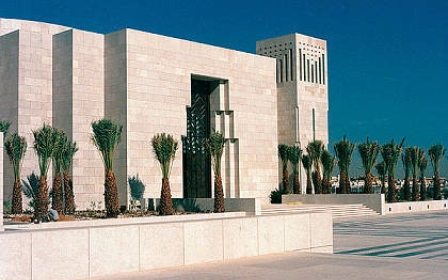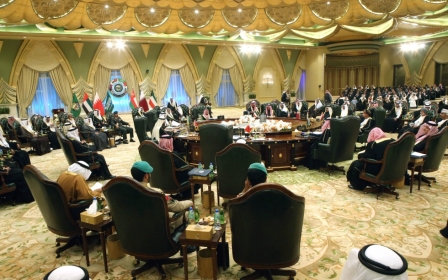Qatari official says GCC dispute 'is over'

Qatar's dispute with three fellow Gulf states, which saw then withdraw their envoys from Doha last month, is "over", the Qatari foreign minister said Wednesday, while insisting his country had made no concessions.
"The statement issued in Riyadh on April 17 was clear ... For the brothers in the Gulf Cooperation Council (GCC) the dispute is over," Khaled Al-Attiyah told a press conference in Kuwait after a meeting with his Kuwaiti counterpart Sheikh Sabah Khaled Al-Sabah.
GCC foreign ministers met last week and announced an end to months of unprecedented tensions between Qatar and Saudi Arabia, the United Arab Emirates and Bahrain.
They agreed to press ahead with implementing an agreement they signed last November, which obliges its signatories not to intervene in the affairs of other member states.
After the meeting at a Saudi airbase, the foreign ministers agreed to not support organisations or individuals that threaten the security and stability of GCC member states, as well as refrain from supporting what they called "hostile" media, according to a joint statement released following the meeting.
New MEE newsletter: Jerusalem Dispatch
Sign up to get the latest insights and analysis on Israel-Palestine, alongside Turkey Unpacked and other MEE newsletters
The three countries in March recalled their ambassadors from Doha, after accusing Qatar of meddling in their internal affairs and supporting the banned Muslim Brotherhood.
Al-Attiyah's statement was the first Qatari comment on the special ministerial meeting held in Saudi Arabia.
"Brothers in the GCC states arrived at understandings which are not considered to be concessions by any party," the Qatari minister said.
Al-Attiyah said it is now "left for the brothers in the GCC states to send their ambassadors back" to Doha.
He said that a statement attributed to Saudi Arabia claiming the three ambassadors would not return until Doha started to implement the agreement was "inaccurate",
At the meeting in Riyadh, the ministers agreed that the policies of GCC member states should not undermine each other's "interests, security and stability".
Al-Attiyah declined to provide details on the Riyadh agreement but reiterated that it signalled an end to the "differences in opinion".
Some commentators saw the statement as a real rapprochement between the GCC countries.
In a column on Arabic news website Arabi 21, Ali Al-Thufairi, a Saudi broadcaster on Aljazeera, said none of the GCC countries compromised or conceded to one another, but instead they all agreed as partners and brothers under one umbrella,
However, other analysts said this does not not nessecarily mean an end to the internal GCC conflict.
Ma’moon Fandi, Egyptian-born American scholar and president of the London Global Strategy Institute, stated in a column in the Arab daily Alsharq Alawsat that the real issues behind the row have not been tackled.
“Until now, the Qatari media seemed to signify that Qatar will not withdraw from backing the Muslim Brotherhood, at least not in Egypt. Doha says that Egypt was not on the agenda during GCC meetings,” wrote Fandi.
Al-Attiyah had arrived in Kuwait Tuesday to lead his country's delegation to a joint cooperation committee meeting.
He was welcomed at the airport by his Kuwaiti counterpart Sheikh Al-Sabah.
The visit is the first by a top Qatari official since Doha signed an agreement with Saudi Arabia, the United Arab Emirates and Bahrain to end their diplomatic standoff.
Local media said that the deal commits Doha to change its position on the Egyptian crisis.
Relations between Cairo and Doha have soured dramatically since the army ousted Morsi - Egypt's first freely elected leader - on the back of demonstrations last year against his presidency.
Following Morsi's ouster and subsequent imprisonment, a number of his supporters fled to Qatar amid a heavy-handed crackdown on pro-democracy protests by Egypt's army-backed interim authorities.
Saudi Arabia and other Gulf monarchies have long been hostile towards Morsi's Muslim Brotherhood, fearing that its brand of grass-roots activism and political Islam could undermine their authority. Tensions that had been simmering for months peaked in early February when Abu Dhabi summoned Doha's ambassador to protest against "insults" to the UAE by Egypt-born cleric Yusef al-Qaradawi, a Qatari citizen.
The coverage of the influential Doha-based Al-Jazeera satellite channel, seen by critics as biased in favour of the Brotherhood, has also increased tensions between Qatar and its Gulf neighbours.
Middle East Eye delivers independent and unrivalled coverage and analysis of the Middle East, North Africa and beyond. To learn more about republishing this content and the associated fees, please fill out this form. More about MEE can be found here.



